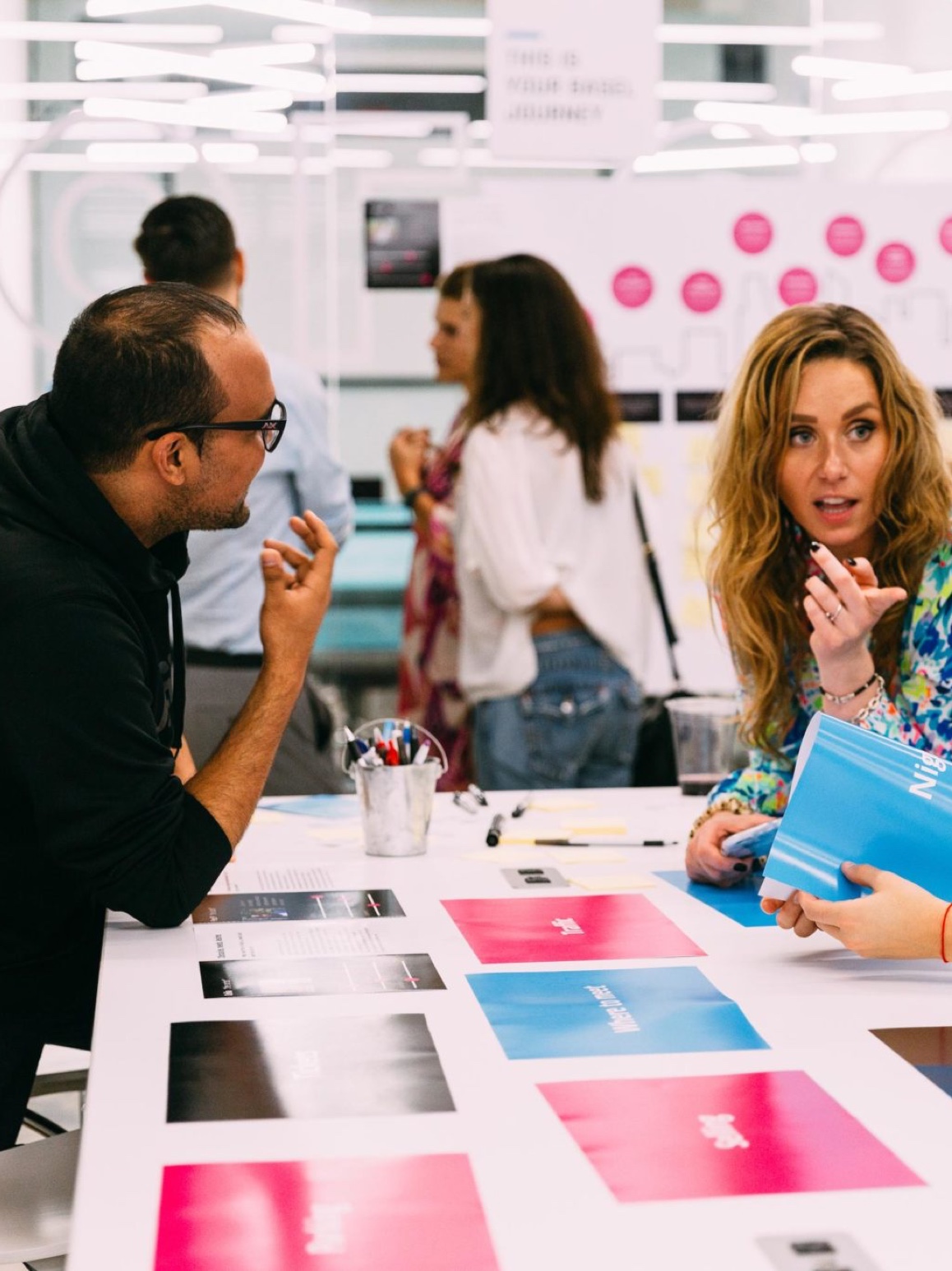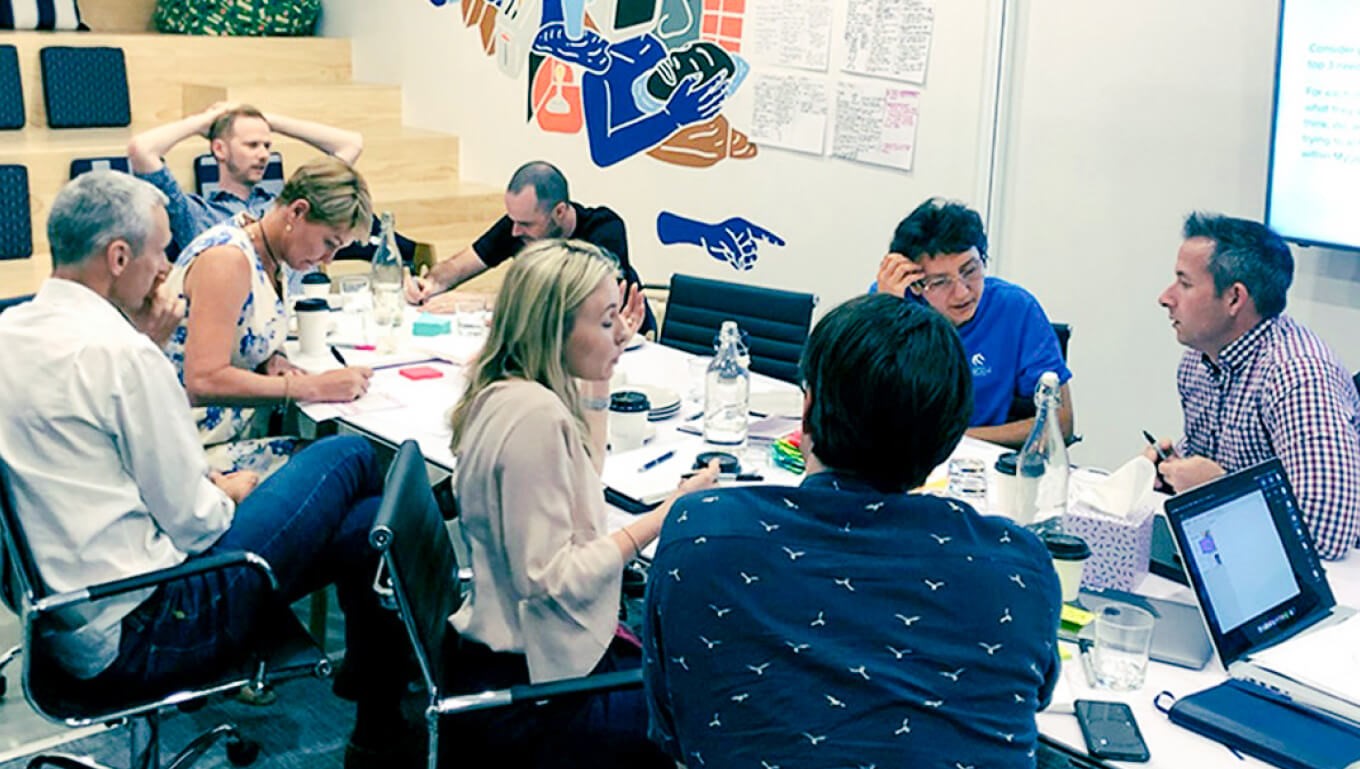Almost every professional has participated in a workshop during their adult life and they get the schtick; Facilitator up-front, everyone else sitting down, chipping in occasionally, and (generally) good vibes.
That said, as familiar as most professionals are with workshops, it’s easy to underestimate how big a step it is to transition from being a person sitting in a chair to the person leading the room. Running workshops can feel like a massive task if you’ve never done it before.
I’ve lost count of the product strategy, user experience, and user testing workshops I’ve run. They’ve been a steady feature of my entire career. Like almost everything in life, running great workshops just comes down to practice. No one's great at anything the first time they try and I’d assume they were lying if they said otherwise.
One piece of important advice I received from a past workmate was that ‘a great workshop is like a good board game. Someone needs to know the rules, someone needs to watch the time, and everyone needs to have their turn.’
In the 10 years between my friend telling me that and today, I assume I’ve butchered whatever he actually said (as well as the original quote he undoubtedly stole it from). That aside, the main points still stand: you need structure, efficiency, and collaboration
So in the spirit of good clickbait, here are my top 5 tips for running a great workshop, whether it’s a product strategy workshop, co-design session, persona/user journey development workshop etc.

1 - Know thy agenda
To be an effective workshop facilitator, you really just need to be the one who knows the rules.
You don’t need to be good at the game - you don’t even have to play the game - you just need to make sure you master the rules before kickoff and enforce them come game-time.
In my opinion, the agenda is the most important aspect of running a workshop.
We’ve all been in a situation where we’ve got a three-hour workshop scheduled and feel overwhelmed by the idea of having enough content. An agenda is the difference between dreading the idea of holding the room for three hours, and actually holding the room for three hours.
Sure, an agenda ensures everyone knows what’s to be discussed, but as a facilitator, it’s your get out of jail free card whenever the conversation lags or people lose focus: ‘onto the next agenda item!’
Pro-Tip: a great agenda is one filled with items that require someone else to do the talking.
2 - Comfort Breaks
Schedule in breaks - even in a three-hour workshop. Attendees won’t feel it’s a waste of their time (they’ll want them too) just as much as you’ll want them after standing at the front of the room for a few hours
Breaks give people a chance to get a drink and go to the bathroom. If you don’t schedule them, you’ll end up with attendees dipping in and out anyway, so you may as well lock in a time. Make sure you let people know there will be breaks too, so they use them effectively.
Pro-Tip: Follow the standard workday advice: five minutes' break for every two hours at work.
3 - Delegate. Delegate. Delegate.
I think my greatest revelation was the understanding that facilitating a workshop doesn’t mean ‘doing all the work’. That’s the job of the attendees! You’re running the workshop, you don’t also need to be doing the work.
Need someone to keep time? Anyone can watch a clock as well as you.
Worried about your handwriting? Make your attendees write their own Post-it notes.
A workshop isn’t a live performance of your practitioner skills when you’re not running workshops, if anything, it’s a live performance of the attendees’. You have the questions, they explain the answers.
Pro-Tip: Get some attendees to stand up with you (e.g. the person writing Post-its). Things always feel easier with two people standing.

4 - Keeping Time
You’ve planned an agenda, you need to stick to it! Well, sort of…
While agendas ensure you always have something to move onto, timekeeping ensures you don’t spend forty minutes discussing the ‘purpose of the project’ to which you allotted five minutes.
Get a Parking Lot up on the wall. If things get off-track, step in, park it, and make your delegated Post-it note writer (see number 3 above) add the unresolved item to the Parking Lot. That being said, don’t stifle great conversation and ideas because you’re 1 minute over - try to be a little flexible.
On the flip side of that coin, don’t feel like you have to pad out an activity because things are going quicker than planned and you’re ahead of schedule. No one cares! If you find a workshop attendee that gets upset that their workshop wrapped up early and you gifted them part of their day back, feel free to email me and I’ll change this section.
Pro-Tip: For the activities at the end of the agenda, have a one-liner ready to go about how you’ll handle these items if you run out of time. Second workshop? Over email? Another job for the delegated Post-it note writer? Just ensure your attendees know it’ll be handled.
5 - Diplomacy
This is the trickiest item on the list. Playing peacekeeper. While a workshop is a great tool to get lots of ideas in a room, it’s also (unfortunately) a great opportunity for the loudest person in the room to do the most talking.
It can be tricky to ensure that everyone has their say. After all, it’s quite possible the reason the workshop exists is to tackle problems created by the fact that attendees aren’t communicating effectively.
Loud people, extroverts, and senior staff will likely have no trouble being heard, but it’s important that everyone else gets their turn too. In fact, it’s likely that these three types of attendee will appreciate you giving a voice to more reserved attendees.
Pro-Tip: Instead of asking the room something like ‘What are the goals of this project?’ and creating a space for the loudest person to seize ownership, make all attendees spend two minutes in their own time writing their goals down on Post-it notes. Then go around the room and get everyone to read out their goals. Start with the person left of the quietest attendee. Getting lots of duplicates? That’s great - everyone’s views align!
***
Q is Mudbath’s Design Operations Manager, leading our team of UX, UI and Visual Designers and Business Analysts. His career has included hundreds of workshops, thousands of hours leading product strategy discussions, and uncountable (heavy) board game losses.
For more insights from Mudbath's UX Design team, click here.



